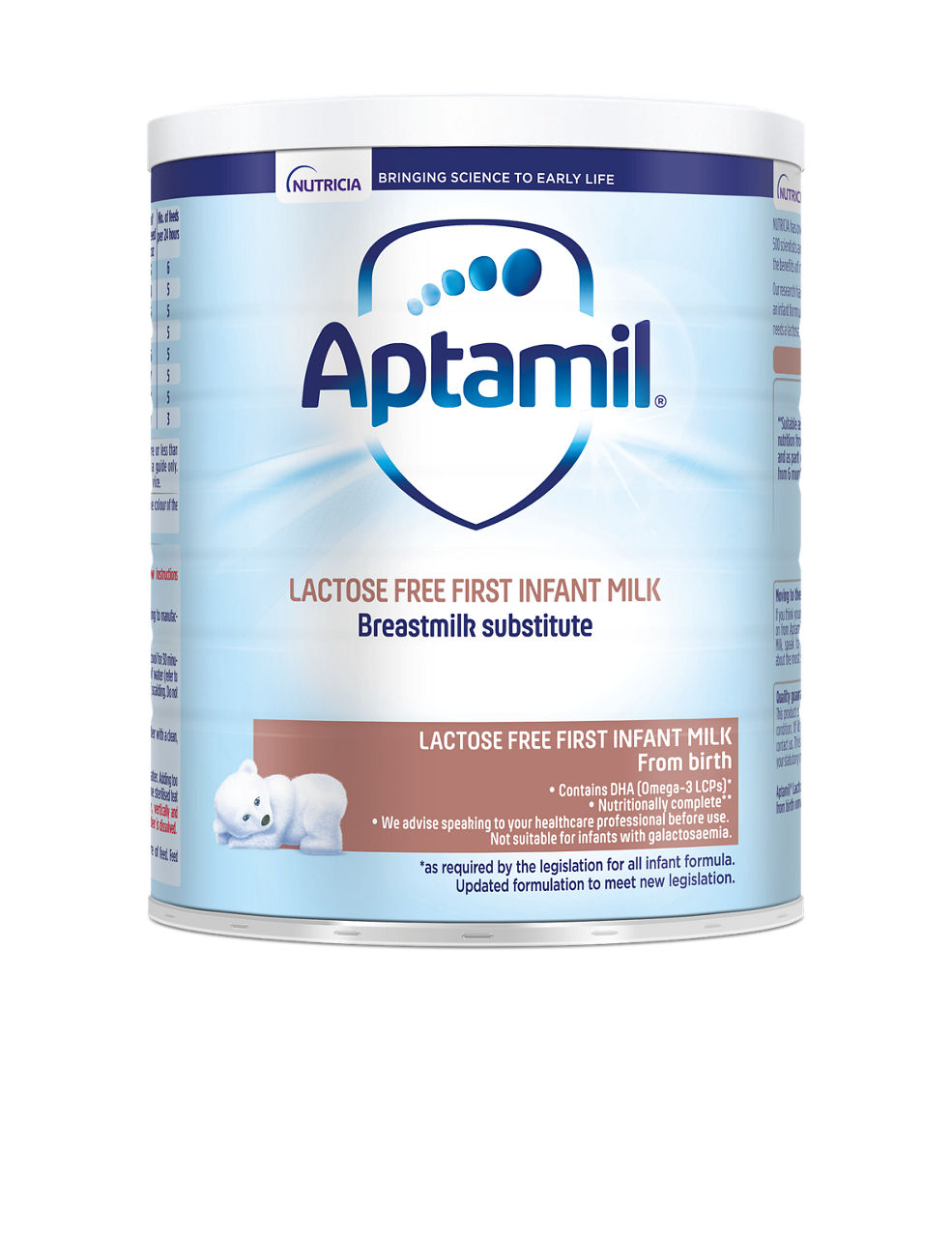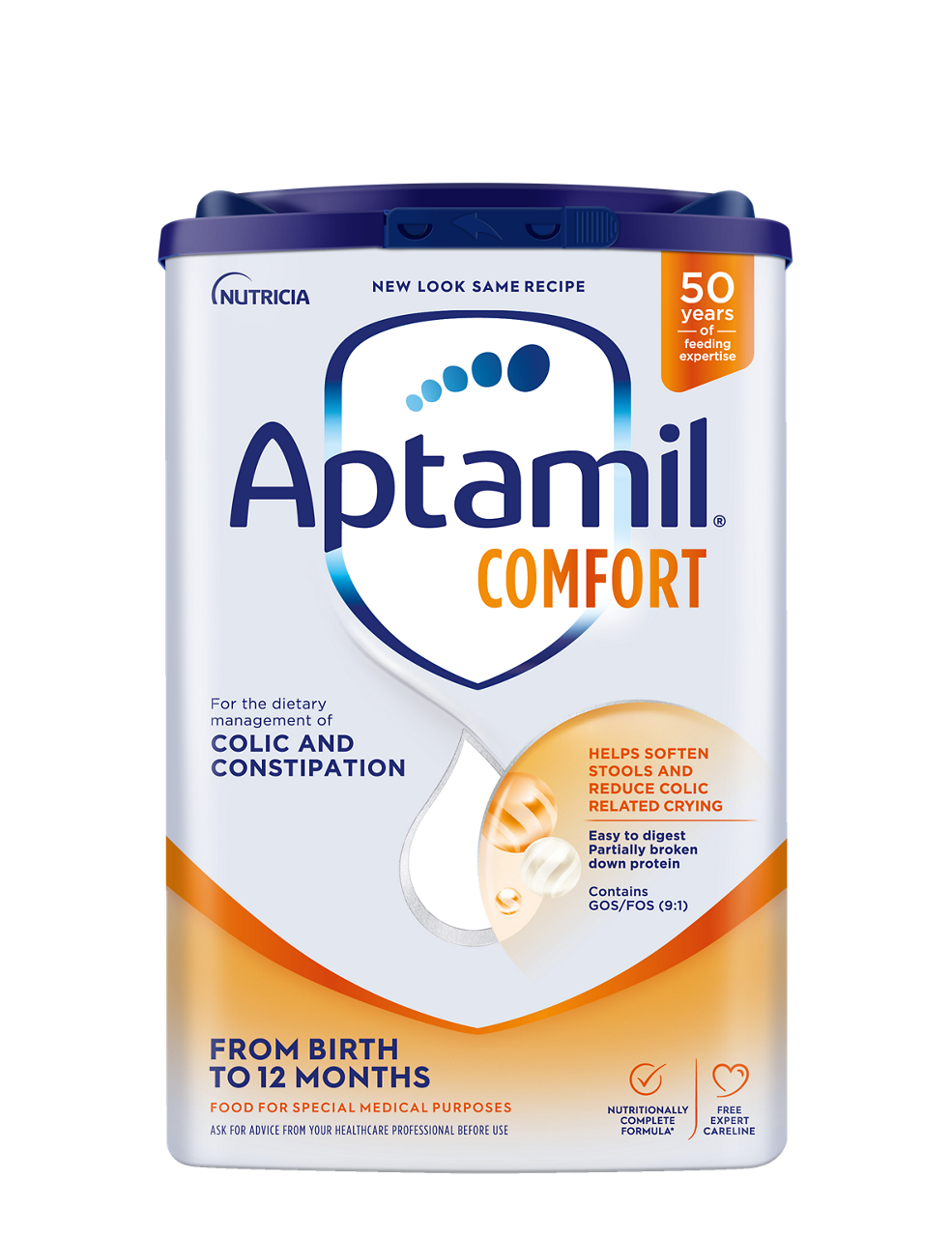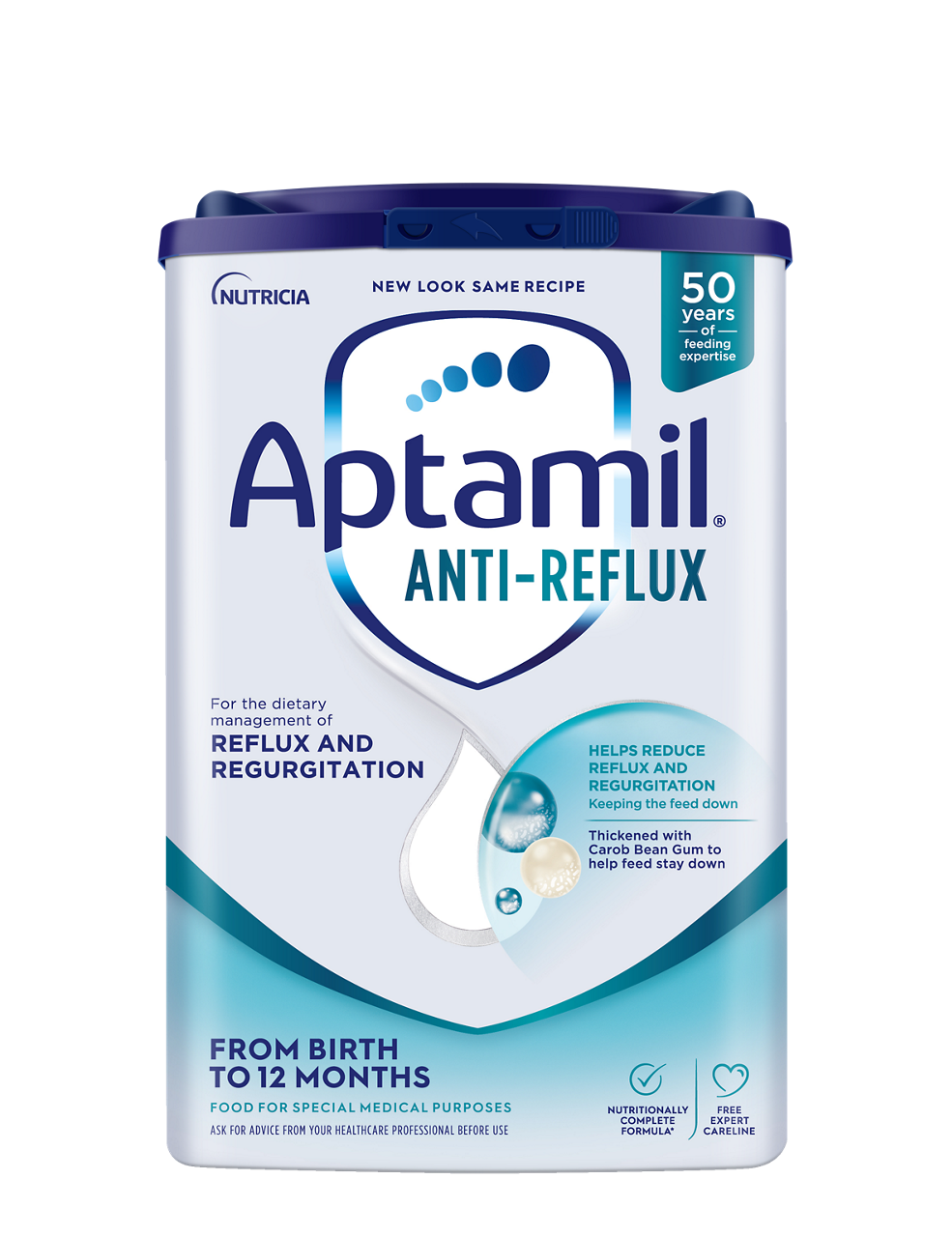Glucose syrup, Vegetable oils (Palm oil, Coconut oil, Rapeseed oil, High oleic sunflower oil, Sunflower oil), Calcium caseinate (from milk), Maltodextrin, Calcium phosphate, Sodium citrate, Potassium hydrogen phosphate, Fish oil, Potassium citrate, Magnesium chloride, Potassium chloride, L-Cysteine, Choline chloride, Oil from Mortierella Alpina, Emulsifier (Soy lecithin), Vitamin C, Potassium hydroxide, Inositol, Taurine, L-Tryptophan, L-Carnitine, Ferrous sulphate, Zinc sulphate, Vitamin E, Uridine5'-monophosphate sodium salt, Cytidine 5'-monophosphate,Pantothenic acid, Adenosine 5'-monophosphate, Inosine 5'-monophosphate sodium salt, Nicotinamide, Guanosine 5'-monophosphate sodium salt, Copper sulphate, Riboflavin, Vitamin A, Thiamin, Vitamin B6, Potassium iodide, Folic acid, Manganese sulphate, Sodium selenite, Vitamin K1, Biotin, VitaminD3, Vitamin B12. Allergy Advice: For allergens, see ingredients in bold.



